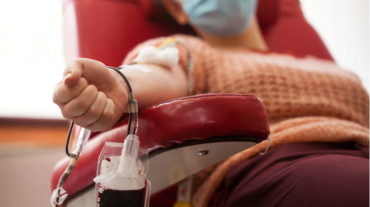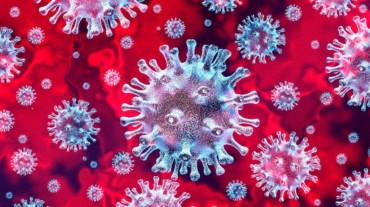
Amidst the covid-19 crisis, the plasma treatment has brought a ray of hope. However, ever since it was first used to treat covid-19 patients, the medical community has been debating its efficacy.
A study published in the journal Blood found that antibodies in the plasma collected after the donor’s recovery from covid-19 start to disappear after three months of after the onset of the first symptoms.
When someone is infected with a virus, their body makes antibodies to fight the resulting infection. After the recovery, antibodies can remain in a person’s blood plasma for months or even years. In convalescent plasma treatment, people who are newly ill–in this case with the coronavirus–receive plasma from a recovered person in the hopes that it will bolster their own ability to fight off the virus and limit its severity.
Renée Bazin, PhD, of the Héma-Québec blood center, Canada and the author of the study says: “While many clinical trials are underway to better understand whether convalescent plasma is clinically beneficial for treating covid-19, a key question is at what time point is it most effective to collect donor plasma based on the presence of antibodies that help fight the virus. Based on our findings, antibodies against the new coronavirus are not eternal.”
This small study, which drew from 282 covid-19 plasma donors in Quebec, Canada, followed 15 adults, majorly men, who were diagnosed with and subsequently recovered from covid-19. While symptoms ranged from mild to severe, none of these donors was hospitalized for their covid-19 infection.
Participants each donated their plasma between four and nine times with the first donation occurring between 33 and 77 days after symptom onset and the last donation between 66 and 114 days.
Dr. Bazin said the present study is one of the first longitudinal analyses to show that people who were seropositive–that is, they had produced antibodies against the virus that causes covid-19–become seronegative, which means there were no detectable antibodies after a certain point.
The decline in antibodies over time appears unrelated to the number of times someone donated blood plasma and is, instead, due to the elapsed time since the infection and a natural waning of the immune response. All 15 donors showed decreases in antibodies at the same time, around 88 days, and half of the detectable antibodies decreased within 21 days afterwards.
“The antibodies disappear rapidly, so people recovering from covid-19 who want to donate blood plasma should not wait too long once they become eligible to donate,” said Dr Bazin.

“Based on our findings, clinicians should ideally use plasma that is collected early on after a donor’s onset of symptoms and check for the presence of antibodies before giving donor plasma to a patient,” said Dr Bazin.
Select Topics of your interest and let us customize your feed.
PERSONALISE NOWShe noted that nearly 7% of the original 282 donors did not have detectable antibodies at their first donation and this proportion doubled when considering donors who waited more than 11 to 12 weeks after symptom onset before donating.
Also, read: Indian health ministry suggests plasma therapy only for covid patients with moderate infections
Of course, understanding the drop-off of antibodies following natural infection with COVID-19 has practical applications not only to help inform policies for when convalescent plasma is most effective (i.e. before immune response starts to decline), but it may also have implications for seroprevalence studies that gauge how many people in a community have antibodies against the virus.
“Based on our findings, if antibodies wane three to four months after a peak of infection, we could underestimate the prevalence of the infection in communities or populations,” said Dr. Bazin.
Researchers plan to follow plasma blood donors over time and while they did not select for specific plasma (for example, those with only high antibody titers) for this analysis, future studies will try to determine if a certain plasma is more beneficial.